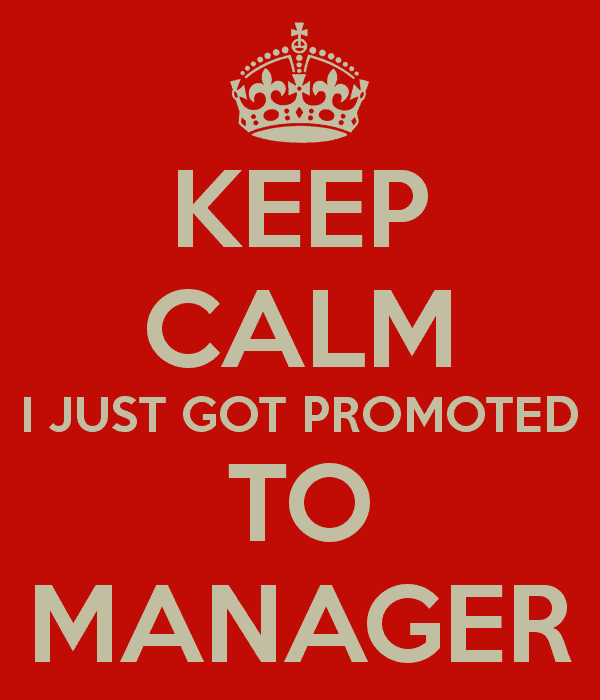What's the Ideal Manager-Employee Relationship?
You may have seen me featured as "The Candid Boss" for The Muse, an online career resource destination. One of the questions I am often asked is, can...

There are a long list of things that every manager needs to do every day, every week, every quarter, to be successful. One of these, which we’ve been heavily focused on to start, is feedback. We believe that feedback is at the center of what managers need to do to build good relationships and drive performance on their teams. But a manager’s responsibilities do not end there! And with our vision to help people enjoy their work and do the best work of their lives, neither does our area of focus. So let’s talk about an equally important responsibility of every manager: Career Conversations.
Career Conversations are exactly what they sound like - discussions about someone’s career with an emphasis on their long-term career aspirations. When done well, these should connect a person’s past - gaining a detailed understanding of who they are and what motivates them at work through their life story - with their future - the wildest dreams they have for themselves at the pinnacle of their career. Only with a detailed understanding of both the path behind them and the dream in the distance is it possible to plan a path forward right now.
A common question to start is “Why should managers do this? Why should they have these conversations with their team?”
Average Manager vs. Great Manager


Image source: Julie Zhuo on Medium
The number one reason that managers should have Career Conversations with their team is that people need help with this. After having hundreds, possibly thousands of Career Conversations, I’ve seen a lot of self-defeating tendencies among people thinking about their careers. Flawed thinking, deprioritization, trying to live their parents’ dreams for them… it’s all bad, and people need help. We all do.
Reason number two: people on your team and in your organization are thinking about things like next step, career, growth, and development. They are actively considering all of their options within and beyond your company and your team. This report from LinkedIn found that people's #1 motive for changing jobs is career opportunity.
So you can either not engage and then get surprised when someone hands in their resignation, or...
You can be a part of that conversation from the beginning and contribute to this decision-making as a trusted advisor. In this case, it might still be the right thing for someone to leave, but at least you’ve had some time to prepare for that departure. Maybe you can reduce the time that there’s a gap. You’ll save the company cycles in trying to figure out what to do to retain this person.
In short, your choice is to participate, be helpful, and be prepared or to bury your head in the sand and get surprised.
Finally, and extremely importantly, isn’t your job as a leader to help people grow? I hope this is an obvious ‘yes’ to you, but then a very reasonable question is “help them grow into what?”
Career Conversations are all about growth, and growth toward a dream. They will enable you to really help the people on your team, to be a leader who invests in the team and makes work more rewarding and more fun.
So what’s the problem? Aren’t managers already doing growth and career plans? Unfortunately, no. There are four main problems with Career Conversations today.
Tyler Durden taught us that the first rule about Fight Club is that you do not talk about Fight Club. This is also the second rule about Fight Club… and there are only 4 rules!
Similarly, the single biggest problem with Career Conversations is that there are no Career Conversations. Often leaders think they’re having Career Conversations, but they’re really just having imposter conversations. For example, some leaders believe they are having Career Conversations because they’re having performance reviews. But performance reviews tend to be mostly backward looking, and we’re talking about mostly the future. Performance reviews are not Career Conversations.
Other times, leaders just don’t know that they’re supposed to be having these types of conversations, and even if it crosses their minds, they don’t know exactly what to do or they’re just too darn busy trying to deliver the quarter, ship product, or audit the accounts to free up the time to do it.
New first rule about Career Conversations: Do talk about Career Conversations. We need to educate managers on the importance and proper process for Career Conversations.
If Career Conversations are happening at all, they are rather frequently carried out with an excessively short-term focus. There is a time to be sure to deal with the short-run in Career Conversations, but that’s just not the place to start. Steven Covey argued that “Some habits of ineffectiveness are rooted in our social conditioning toward quick-fix, short-term thinking.”
One example of excessive short-term focus I’ve seen is the idea that promotion = career development. This is just not true at all. Promotions, at their absolute best, represent incremental personal growth - a scope increase that brings new challenges, responsibilities, and requires new thinking. That’s good!
Promotions, at their worst, are nothing. A nominal title change with virtually no change to anything else. At their most normal, promotions represent a rare, formal recognition of a job well done that includes pay and title increase. They feel good for about a week, but those feelings are ephemeral. Generally, it’s back to business as usual, the promotion offering no clarity on what the future holds, what it should hold, and how to get there.
Career Conversations require us to deal explicitly with future, and nothing about promotions is rooted in a compelling, shared-understanding of the future.
I want to tell you a story, maybe you’ve heard it before. It’s called, The Ridiculousness of the IDP. Ah, the IDP, or the Individual Development Plan. Once upon a time, the Chief-Whatchamahoozit at Company XYZ, Inc. gathered his VPs together to look at employee engagement survey scores. They had some good analysts there at XYZ, so it was plain to see on the slides that people didn’t plan to be with the company in the next 3-5 years. They could further plainly see that “development” and “career” were reasons why. The HR person, passionate about growth and development and looking to be action-oriented, said, “maybe we should have everyone do an IDP.”
The VPs, desperate themselves for an action-plan, said, “Great idea! IDPs! Let’s gather our directors and give them the good news!”
They then said, “Hey directors, I need everyone in your organization to do an IDP.”
Director-gal said, “OK, boss, by when?”
VP responded, “Next Friday.”
Then Director-gal gathered her managers and stated, “We need everyone to have done their IDPs done by next Wednesday.”
Manager-guy then turned to his team and said, “Gang, I need your IDPs done by next Monday.”
Everyone said ‘ok’, and they hammered out their IDPs over the weekend. David started working on his IDP on Saturday, finished it up Sunday evening, and made sure he filled in all the spaces on the sheet. Monday came and everyone said, “we’re 100% compliant on IDPs” and on it went, right on up the chain.
Meanwhile no one had any idea what was in any of the IDPs, and worse, no one - and I mean no one - ever looked at a single one of those IDPs again.
This is a sad story, and I think we can all agree, that this sucks. A lot. Boxes checked, impact absent.
We plan our families, as we should. We sometimes plan our meals, but probably not as often as we should. We plan our weekends and our vacations. Those are fun. With all of this planning, though, somehow for the thing we spend most of our waking hours on, our careers, we’re surprisingly unstructured and haphazard.
If we focus on our careers at all we will often do so with no real intentionality, with no grounding in anything logical, and without a shred of analytical thinking. These plans are almost never grounded in a compelling future, are almost never grounded in a shared sense of one’s past, and therefore it’s nearly impossible to arrive at any sort of relevant conclusion about what someone should do right now in service to their career aspirations.
We’ve got to start doing Career Conversations with a more structured, intentional approach. We have to understand the past and the future in order to know what to do in the present, what to do right now.

The first step is to understand people’s motivations and values, the things that drive them. It’s amazing what you can learn from a person’s life story if you pay close attention to and ask about their major pivots and transitions. Why did they make them? What did those transitions teach them about what they love and hate about their work?
Step two is understanding where people want to be at the pinnacle of their careers. Some are skeptical that our younger workers know what they want to be when they grow up. Everyone has dreams, though, and we just have to help people make them a little more tangible. Others worry about honing in on a single vision too early in their career. Don’t use those worries as excuses; there are ways to deal with them.
With an understanding of the past and the future, we’re only now able to build a relevant and thoughtful action plan with clear owners and clear timelines. We can see the path behind us, we can see the lighthouse in the distance, and now we just need to start laying some flagstones on the ground to connect the two.
We have to understand the past and the future in order to know what to do in the present, what to do right now.
We want to help managers get better at Career Conversations -- awareness of the issues is just the first step! We’d love to know how we can best help you with these. Tell us what’s most challenging for you!
***
Order Russ's new book! In When They Win, You Win, Russ Laraway, the chief people officer at Qualtrics, provides a simple, coherent, and complete leadership standard that teaches organizational planners and managers how to develop incredible levels of employee engagement. The book identifies three key elements: clear direction-setting, frequent coaching, and active engagement with employees on their long-term career goals.
Need help practicing Radical Candor? Then you need The Feedback Loop (think Groundhog Day meets The Office), a 5-episode workplace comedy series starring David Alan Grier that brings to life Radical Candor’s simple framework for navigating candid conversations.
You’ll get an hour of hilarious content about a team whose feedback fails are costing them business; improv-inspired exercises to teach everyone the skills they need to work better together, and after-episode action plans you can put into practice immediately to up your helpful feedback EQ.
We’re offering Radical Candor readers 10% off the self-paced e-course. Follow this link and enter the promo code FEEDBACK at checkout.

You may have seen me featured as "The Candid Boss" for The Muse, an online career resource destination. One of the questions I am often asked is, can...

I’ve had a 22-year operational management career, and naturally, I’ve had a lot of new managers in my organizations over the years. ‘New managers,’...

CONGRATULATIONS! You’re now a manager! You’ve worked hard, done well and been promoted to lead a team. That in and of itself is a HUGE...